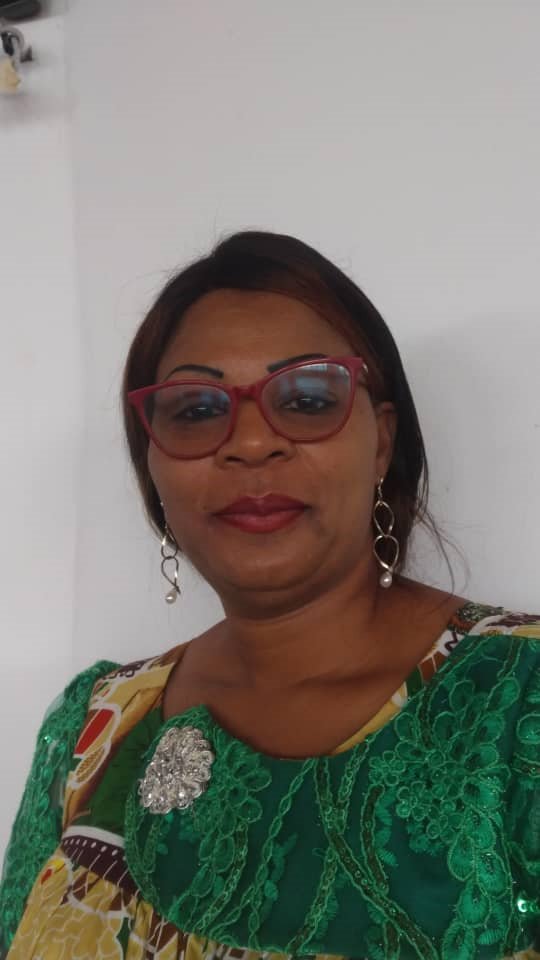Dr Laure Menguene : “We have the impression that violence is an entertainment in Cameroon »

According to the psychiatrist, Deputy Director of Mental Health at the Ministry of Public Health, it is important for individuals to cultivate love on an individual, social, family and professional level to fight against violence.
What can explain the increase
in murders and crimes of passion in our country?
Here, it is already the fact that someone verbalizes his intention.
This is already an important factor to take into consideration. The fact that there is a history of attempted suicide, of mental
illness, is an important factor.
Because you have illnesses where the individual is in despair
and pessimism at the level of thought. He has no future, he has the impression that there is no way out of his difficulties. Being in the grip of mental pain, overwhelming pain, so you have someone who is in pain, who is in intense pain, and who has no hope. For him, the only solution is to kill himself. And when we give ourselves to death, generally it’s because we are in intense pain, we are in the grip of frustration,
of internal anger. Now, this anger, all these emotions can turn against this individual, or towards the other. Towards the other, what is it in the context of crimes of passion? I find my husband or wife with someone, so what triggers off emotionally? There is this pain, this frustration, this anger, and as it is overwhelming,
as it is important, we must be able to relieve ourselves.
And it’s the acting out that relieves
the individual at the time. So, if you have an individual who is impulsive, who is not able to control his emotions, if you have an individual who is first of all in a state of malaise, because he is depressed, because there are financial problems, there are family
problems. You also run the risk that he will act out. These are situations of discomfort, because you should know that within the framework of this type of behaviour
to violence, including the mental health problem, there are two situations: there is the situation of discomfort, like the one who sees his spouse in the midst of infidelity, if you can say so, discomfort, pain, frustration, anger, and we have to react for him, to help all this flood of negative
emotions.
Next to that, there is also the disease,
which is depression. With despair, one can act out. There are also other illnesses, such as psychotic disorders. The individual
is disconnected from reality. He hears voices, voices that tell him to kill, for example, because the other is a threat to his own person. He takes action. We have seen people like that, who feel persecuted by their parents, persecuted
by a neighbour, can act out. But fortunately, the majority of this violence is not caused by mental illness, but by malaise.
We observe that it is much more conjugal violence, linked to love, to disappointments
and also to a somewhat motivated environment.
You are used to this type of environment, can you describe it for us?
What happens in couples is what happens in society as a whole. This is why the Ministry of Public Health, through the sub-directorate
of mental health, has always sounded the alarm on the importance
of mental health, on the importance of well-being in the life of the individual. At present, we have the impression that violence
is a form of entertainment in Cameroon. It is a reality that ill-being reigns supreme in our society. The malaise starts in the family, in the school, in the workplace, in the social environment.
In short, a general malaise. Unfortunately, the family environment
is the most toxic environment
for the individual. This environment, which is normally supposed to inculcate rules and principles of life, has become a hell for individuals. Why, because there is a lack of well-being. There is a crying lack of love in the family environment and in society as a whole.
When we talk about lack of love, we are thinking more about good communication, good interaction,
solidarity, taking care of oneself and the other. This is very much missing in our society, especially in the family environment.
Not to be confused with love which is taken in the popular
sense: sexuality, genitality, no. Here, when we talk about love, it’s about well-being. There is no such love, the individual, the parents who live there are in a state of ill-being, or a mental
health problem with repercussions,
not only on physical health, when one is in a state of ill-being, one can develop headaches,
insomnia, hypertension, diabetes, all sorts of illnesses. We have problems of mental illness,
depression, and socially, we have this aggressiveness. We are in an environment where malaise reigns, both in the parents and in the children.
This is something else that is really deplorable because these children will bathe in an environment
where this malaise reigns, or this violence reigns which is either passive, because we don’t talk to each other, because there is no love, or where the violence is active because there is mistreatment on a physical level,
consequently, the child who bathes in this atmosphere will only be watered down with violence,
negativity. Consequently, there is a strong chance that he too will reproduce what he has heard, what he has seen. Social networks only distil negativity into our daily lives. This negativity
is full of violence. Violence at the visual level. Once again, we are raising the awareness of those responsible for communication
by making them understand
that: looking is true, it is passive, but on a cerebral level, the brain registers messages, especially traumatic ones, and the risk is therefore the perpetuation
of this violent behaviour. This makes this violence increasingly
insensitive to individuals. We already have the impression that violence is an entertainment in Cameroon and consequently, it is on a daily basis that people are fed violence. It will only reproduce
this scene of violence because that is what we see, that is what we expect. The important thing here is to put love at the centre of our existence.
Does this love still exist in our society?
Yes, because we have chosen to mediatise and value violence. By mediatising violence, it means that we value this violence, this negativity. That’s why we have the impression that in our society there is no love, that everything is in negativity, darkness, pessimism.
This is completely false, it is important that on an individual,
social, family level, that we can put back the love that exists because it is one of the skills that we all have. We are talking here about love, which simply means communication, good interaction,
solidarity, taking care of oneself and the other. This love allows us to face difficulties. Professional
difficulties, emotional difficulties and others.
Can we also love each other in the professional context, Dr Laure Menguene?
Yes, because in our context too, the professional environment is becoming more and more an environment
where ill-being reigns. Ill-being for several reasons, the workload, the hours that do not conform to working hours, the difficulty of reconciling family life and professional life, harassment
of all kinds. All these factors,
which contribute to ill-being and because the individual experiences
this chronic ill-being, this ill-being on a daily basis, will end up either using substances, because
these substances put him in a state of well-being, he will become depressed, because he is in a state of ill-being, because he is ill-being, he will be able to act out.
The problem of ill-being concerns the whole of society. It concerns politics, the medical sector, the social sector, including the family, the school and society. Everyone is concerned. On the social level, especially on social networks, we should know that when I share an image or a video of violence, when I relay violent comments, I am also an actor who contributes
to the perpetuation of this violence. That’s why the truth is incumbent on all of us. Please, let us put this love back at the centre of our lives. People must know that they are not alone, that they are not abandoned. The Ministry of Public Health, which is concerned
about the physical and mental
health of the population, has set up a toll-free number, 1510, which is available 24 hours a day. People can call and ask for a staff specialised in mental health. This staff will be able to listen to us and guide us, either in psychological
or medical care.
Transcribed by Elvis Serge NSAA
















